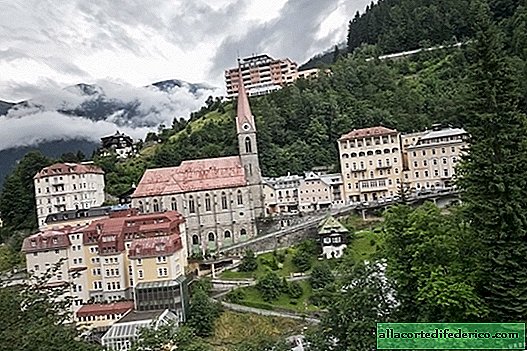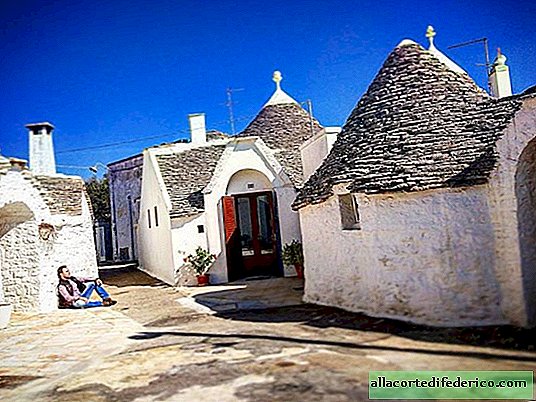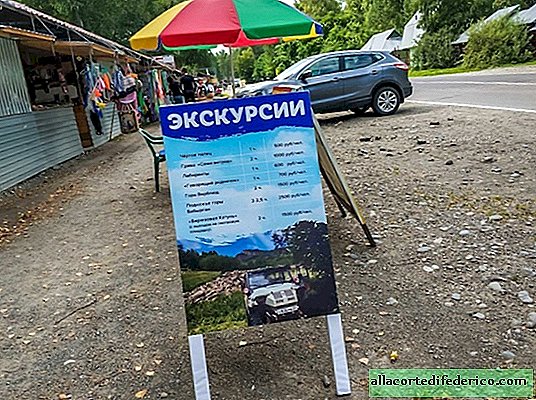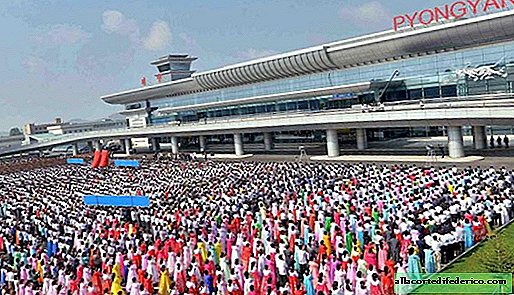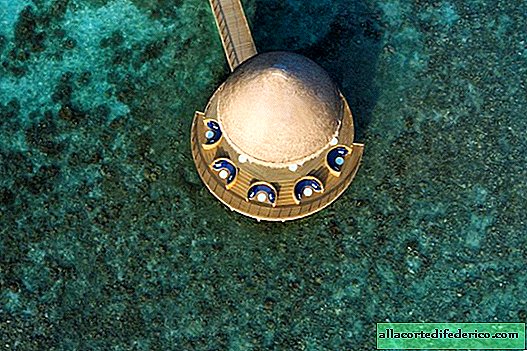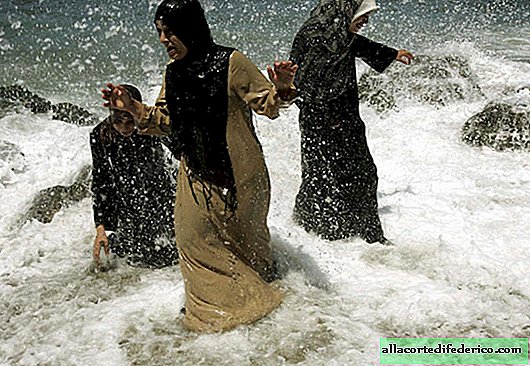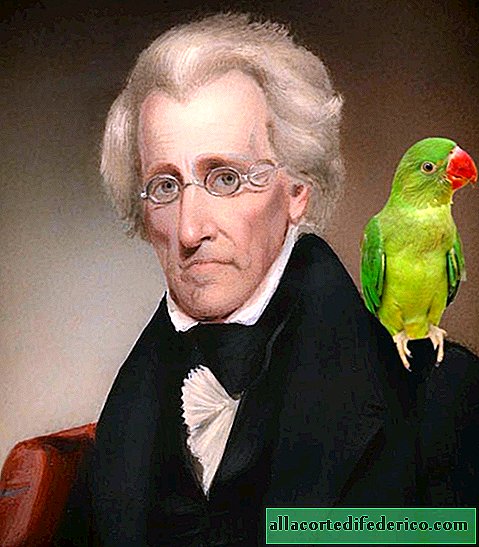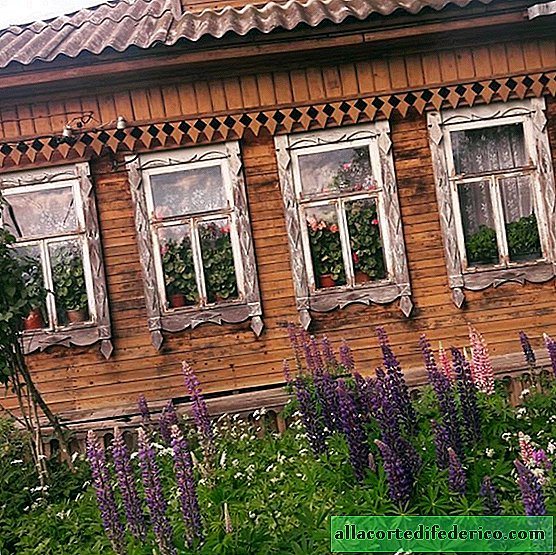Basques - the most mysterious people of Europe
On the border of Spain and France, in the mountainous region on the coast of the Bay of Biscay, one of the most amazing peoples of Europe - the Basques - lives. There is still no consensus among scholars about their origin, and the unique language has no immediate relatives not only among European languages, but also around the world.
The Basques do not have their own state, but they live in a territory called the Basque Country, which is located in the Pyrenees, mostly in Spain, as well as in France. Despite the millennia of life in the neighborhood with other European ethnic groups, the Basques managed to maintain their unique language and their culture almost unchanged. Today, only a part of the Basques speak their native language - about 1 million people, and the total number of Basques in Europe is estimated at 3 million people. In addition to the European representatives of this people, in the world there are about 10 million Basques and their descendants who immigrated to different countries of the New World.
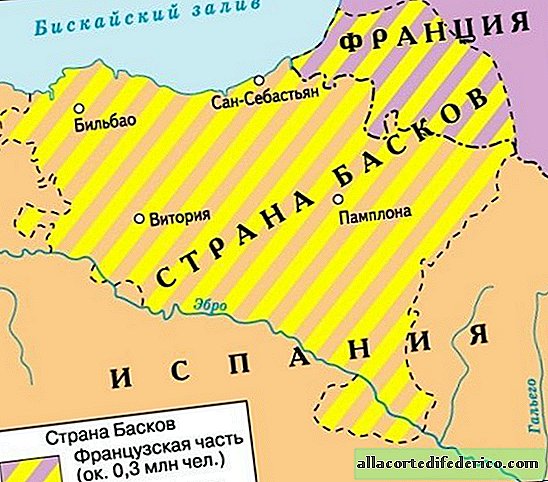 Location of the Basque Country on the border of Spain and France
Location of the Basque Country on the border of Spain and FranceThe Basque language, called Euskara, is one of the few whose place in the world classification of languages has not yet been determined. Linguists do not attribute it to any of the famous families and groups because of its high uniqueness. Attempts have been made to find common links between Euskar and the Arabic language, Japanese and the languages of the nomadic tribes of West Africa, as well as dialects of the peoples of the Caucasus. Only the fact that the Basque language comes from the Aquitanian, spread in Aquitaine before the conquest by the Romans and lasted until the early Middle Ages, can be considered reliably established. Not so long ago, French linguists proved that euskara is an autonomous language that was formed about eight thousand years ago and has been developing independently since then. Researchers recognized the language of Euskar as the only pre-Roman language of Europe, which has survived to our time.
 In the photo: Bilbao - the largest city of the Basque Country
In the photo: Bilbao - the largest city of the Basque CountryDesperate to find out the origin of the Basques with the help of linguistic belonging to a particular group, the researchers turned to geneticists for help. But even they rather added mysteries than clarified this question. It turned out that in terms of genetics, the Basques are also far from all the peoples of Europe and have a high degree of uniqueness. After researching the Basque DNA, scientists concluded that they are descendants of the farmers of the first wave of immigrants who entered Europe about 7,500 years ago. And their unique genetics is due to prolonged further isolation from all other ethnic groups and peoples, including from subsequent immigrants from other continents. But other experts hold a different point of view, according to which this people lives in Europe for at least the last 35 thousand years. Archaeologists conducted studies of burials discovered in the territory of the Basque country, dated to different periods. They did not find any evidence to talk about a change in the composition of the population in this area throughout the entire time, from Cro-Magnon to the appearance of the Romans. Therefore, versions of their direct origin from Cro-Magnons living in this territory are put forward.

Another hallmark of the Basque is the highest among all European nations, the indicator of negative Rh factor of the blood, reaching up to 25%. Another interesting feature is the significant predominance of carriers of the first blood group (up to 55%), while the third blood group was practically not found in Basques. According to the researchers, initially the Basques had only the first and second blood groups, and the third in a minimal amount appeared as a result of their partial mixing with other peoples.
Thus, the point in determining the origin of the Basques is not finally set. Researchers still have a lot of work to do. Perhaps in the future, with the advent of new methods and technologies, we will learn the history of the origin of this distinctive and largely unique people of Europe.



